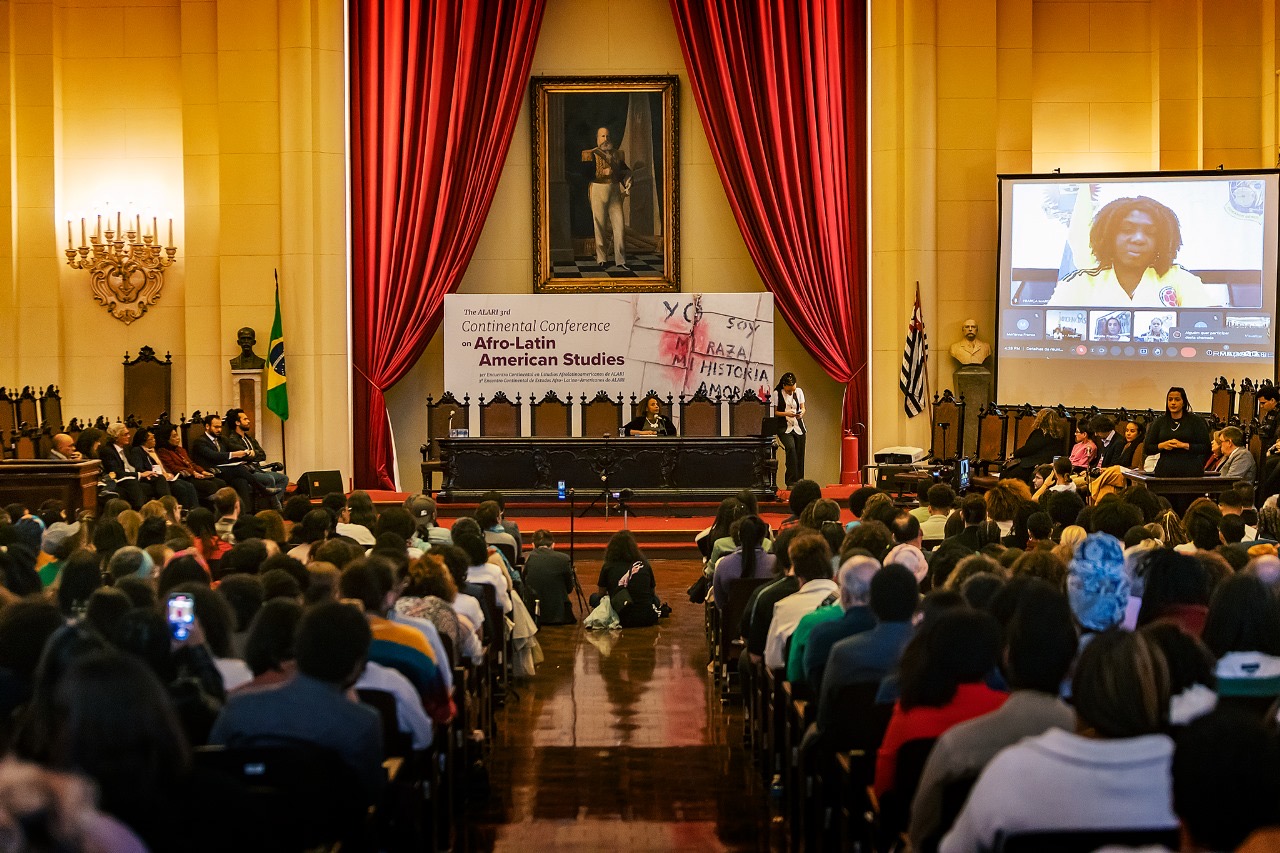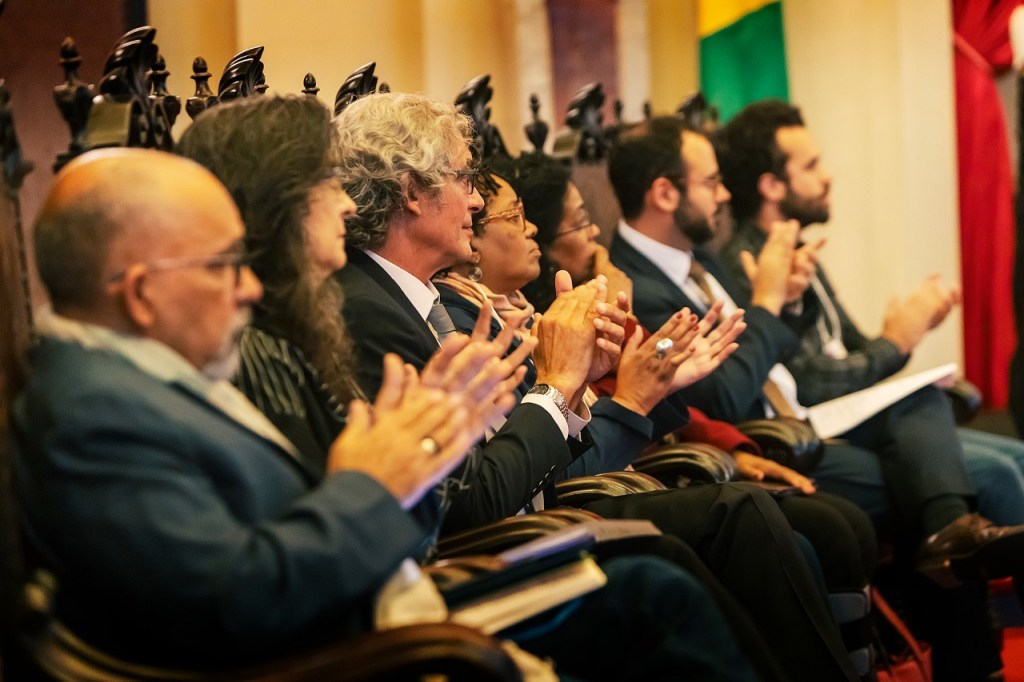ALARI conference provides ‘unique opportunities’ to discuss race in Brazil

The ALARI 3rd Continental Conference began with a panel discussion featuring Colombia Vice President Francia Márquez.
Photo by Lucas Cruz; courtesy of ALARI
More than a thousand scholars, artists, and leaders came together in July in a historic meeting for the advancement of the field of Afro-Latin American Studies.
“Never before had so many producers of antiracist knowledge in Latin America come together in an academic event, to share their research and their initiatives across multiple disciplines,” noted Alejandro de la Fuente, the director of the Afro-Latin American Research Institute at the Hutchins Center. “They did so in a space that has traditionally been averse to that sort of knowledge production and closed to scholars and intellectuals of African descent.”
The ALARI 3rd Continental Conference, held at the Law School of the University of São Paulo, was co-hosted by ALARI, the David Rockefeller Center for Latin American Studies, and the University Consortium for Afro-Latin American Studies. It was the first time the continental conference was held in South America, with the two previous conventions being held at Harvard University in 2019 and 2022.
The event kicked off with a panel that included Colombian Vice President Francia Márquez, as well as Brazil’s Minister of Human Rights Silvio Almeida, and Minister of Racial Equality Anielle Franco.
“It is only possible to understand the economy of Latin America from the historical-cultural formation of race,” Almeida said, according to a statement released by the Brazilian government.
The conference created “unique opportunities” to share and discuss scholarship relating to race, racism, and racial stratification in Latin America, said De la Fuente, who also serves as the Robert Woods Bliss Professor of Latin American History and Economics and professor of African and African American Studies and of History. Researchers from 26 countries participated in 274 panels and roundtables for three days.

Participants, including ALARI Director Alejandro de la Fuente, at the inaugural panel featuring Brazilian and Colombian political leaders.
Photo by Lucas Cruz; courtesy of ALARI
Participants lauded the experience as powerful, enriching, and for promoting reverence to Afro-Latin ancestry.
“This work properly documents our roots, and the roots of inequities Brazil currently has,” said Marcia Castro, Andelot Professor of Demography and chair of the Brazil Studies Program Faculty Committee at DRCLAS. “This meeting facilitates fixing distortions from the past that made invisible important people, facts, and cultures.”
She added that through ALARI, Harvard has allowed scholars of Afro-Latin American studies to improve their academic network and share their findings with other academics, as well as facilitated collaborations between scholars from different Latin American and African nations.
“This scholarly field is at the center of struggles for racial justice in Latin America,” De la Fuente said. “By leading this field, Harvard becomes a force for inclusion and justice in a region that is home to the largest portion of the Diaspora.”




